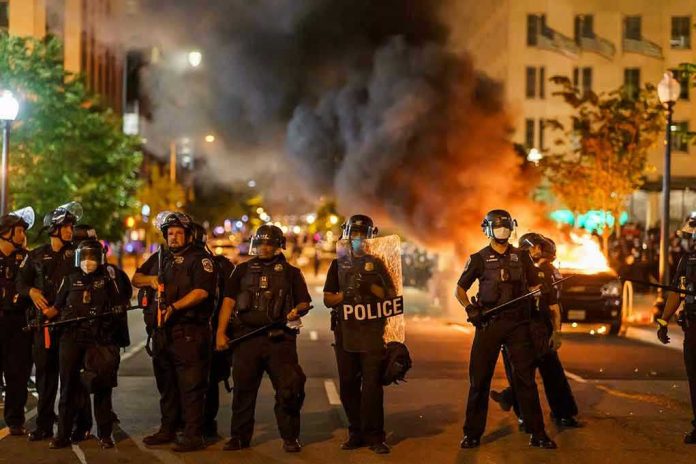
Madagascar’s President Andry Rajoelina abandoned his country rather than face a military that decided his time was up, leaving behind a nation teetering on the edge of chaos and a constitutional crisis with no clear resolution.
Story Snapshot
- President Rajoelina fled Madagascar on October 14, 2025, citing direct threats to his life from military forces
- The Malagasy army seized control after parliament voted to remove him from office on October 15, 2025
- Rajoelina refused to formally resign but acknowledged he had lost control of the government
- The president rejected foreign military intervention, insisting Madagascar must solve its own problems
- This marks the latest chapter in Madagascar’s troubled history of coups and political instability
The President Who Came to Power by Coup Now Flees One
Andry Rajoelina’s political career began with a military coup in 2009 when he overthrew President Marc Ravalomanana. Sixteen years later, he finds himself on the receiving end of the same treatment. Speaking from an undisclosed location in a video released October 14, Rajoelina confirmed what many suspected: he had fled Madagascar because staying meant risking his life. The irony is thick enough to cut with a machete. A man who rode military power to the presidency now runs from it, leaving his country in the hands of the very institution he once exploited for personal gain.
Parliament Pulls the Trigger, Military Seizes the Moment
The collapse came swiftly. Parliament voted to remove Rajoelina from office, providing the legal cover the military needed to justify its takeover. On October 15, 2025, the Malagasy army announced it had assumed control of the government. The sequence reveals a coordinated effort between legislative and military forces to push Rajoelina out. Whether this represents a genuine attempt to restore order or simply another power grab remains unclear. What is certain is that Madagascar’s already fragile democratic institutions have suffered another devastating blow, and the army now holds all the cards.
Rajoelina’s video statement attempted to frame his departure as a principled stand for constitutional order. He urged respect for Madagascar’s constitution and warned that instability would only deepen the poverty already crushing millions of Malagasy citizens. Yet his refusal to formally resign creates a legal gray area that could prolong the crisis. Without a clear transition mechanism, Madagascar faces the prospect of competing claims to legitimacy: a president in exile who won’t resign and a military junta claiming to restore order. This ambiguity benefits no one except those who profit from chaos.
A Nation Exhausted by Repeated Political Crises
Madagascar’s citizens have endured this nightmare before. The island nation has lurched from one political crisis to another for decades, with coups, contested elections, and weak institutions preventing any sustained progress. Rajoelina himself returned to power through elections in 2018 after his earlier coup, but opposition parties claimed irregularities. Persistent allegations of corruption and mismanagement under his administration eroded public confidence. Growing protests over economic hardship signaled that ordinary Malagasy people had run out of patience with leaders more interested in power than governance.
The African Union Offers Help, Rajoelina Says No
Regional actors, including the African Union and neighboring states, offered to send peacekeeping troops to stabilize the situation. Rajoelina rejected the proposal outright, insisting that Madagascar must solve its own problems according to Malagasy values. This stance appeals to nationalist sentiment but ignores the practical reality that Madagascar has repeatedly failed to resolve its political dysfunction without outside pressure. The rejection of international assistance also raises questions about what Rajoelina fears peacekeepers might discover or whom they might support. A neutral force could complicate any plans he harbors for a return to power.
The economic implications are severe and immediate. Madagascar’s economy depends heavily on agriculture and foreign aid, both of which suffer when political instability strikes. Investors flee, development projects stall, and international donors suspend assistance until they can identify a legitimate government to work with. Tourism, another critical sector, will collapse as potential visitors choose safer destinations. The Malagasy people, already among the poorest in Africa, will bear the brunt of this crisis through job losses, service disruptions, and rising prices for basic goods.
Military Rule Rarely Delivers What It Promises
History offers little comfort that military rule will improve Madagascar’s situation. Armed forces excel at seizing power but typically struggle to govern effectively. The army has provided no detailed plan for Madagascar’s future, no timeline for elections, and no assurances that democratic norms will be restored. What is clear is that another generation of Malagasy citizens will grow up watching their country’s institutions weaken further. Each coup makes the next one easier to justify, creating a vicious cycle that traps nations in perpetual instability. Breaking this pattern requires more than changing faces at the top; it demands building institutions strong enough to constrain ambitious individuals and military factions alike.
What Happens Next Depends on Choices Not Yet Made
Madagascar now stands at a crossroads. The military could surprise skeptics by quickly organizing legitimate elections and returning to barracks. More likely, the generals will discover they enjoy power and find reasons to delay any transition. Rajoelina could attempt to rally international support for his return or fade into comfortable exile. Regional powers could apply meaningful pressure for democratic restoration or simply issue empty statements while focusing on their own problems. The Malagasy people could demand accountability through sustained protests or resign themselves to yet another disappointment. What seems certain is that without fundamental changes to how Madagascar’s institutions function, this crisis will simply be prologue to the next one.
Sources:
RFI: Madagascar army seizes power after president Rajoelina flees country

